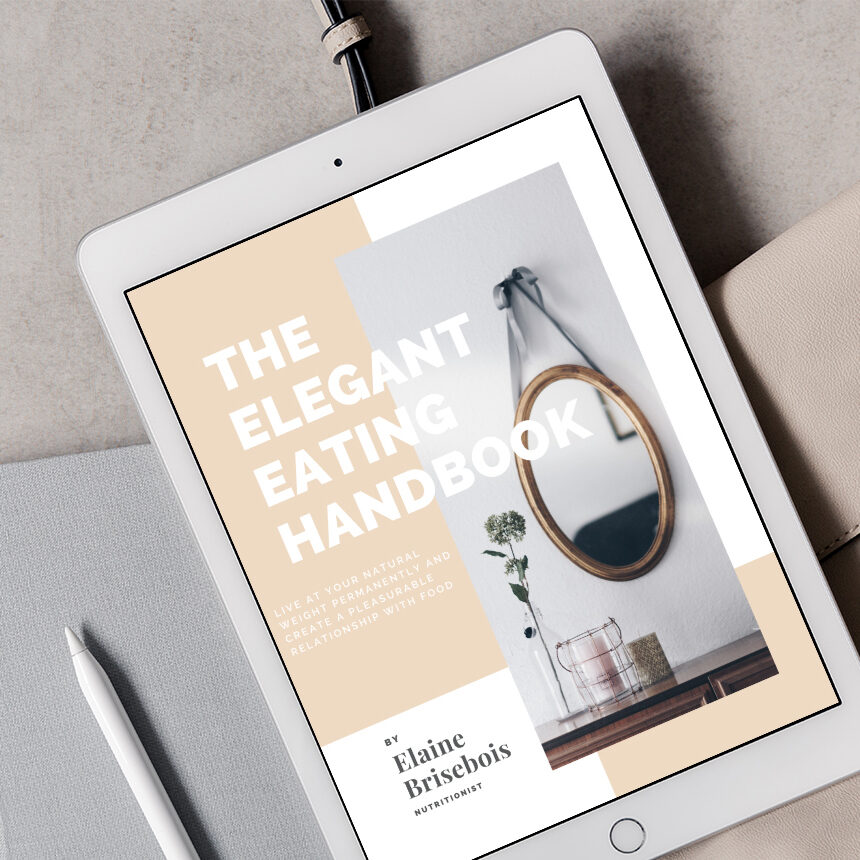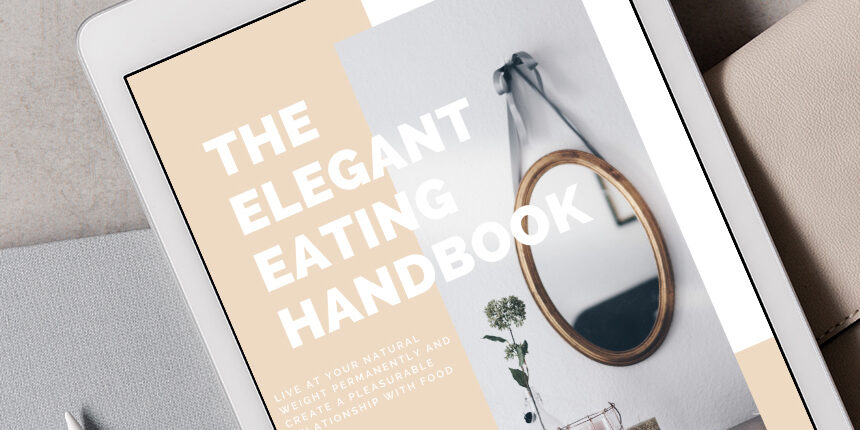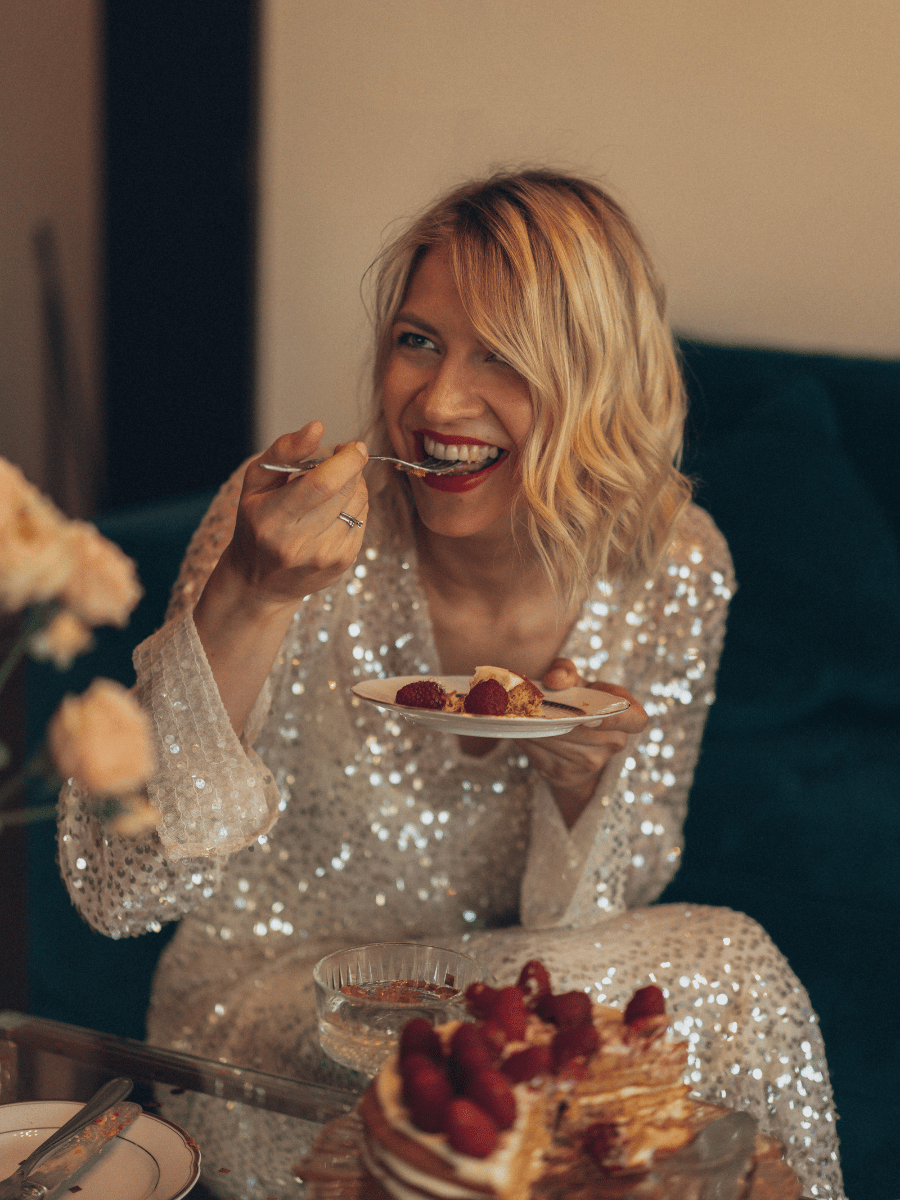(The following is an excerpt from The Elegant Eating Handbook. You can download a free copy here).
It’s challenging to make healthy eating choices when food cravings and over-desire is running the show.
When we eat foods in their natural whole food form, our brain releases dopamine, which lights up our brain’s reward centre, and we feel good.
Eating is, of course, meant to be a pleasurable experience; otherwise, there would be no motivation to eat.
Our primitive brain, which was the first part of the brain to evolve, is focused on three main things:
- seeking pleasure
- avoiding pain and
- expending as little effort as possible
When we eat food and experience pleasure, the primitive brain is programmed to take note of the experience so that it can encourage us to repeat the same action again (and, therefore, experience more pleasure).
It encourages us by creating a desire for foods that fuel and nourish our bodies.
The problem is, though, we’ve taken real, whole foods and processed them down into substances that provide us with an intensified hit of pleasure – much more pleasure than we would ever get by eating them in their natural state. Think whole wheat berries vs wheat flour, or a piece of whole fruit vs fruit juice.
If our diet is filled with a lot of concentrated pleasure, our primitive brain is just doing its job when it takes note of it and creates a large amount of desire to repeat the experience.
And let’s face it.
When we decide to lose weight and eat healthier, it’s not as if all our desire for these foods suddenly disappears.
Rather, instead of reaching for “the cookie,” we rely on willpower to avoid eating it.
But research shows us that willpower is NOT an infinite resource. It’s kind of like a muscle – the more we use it, the more it fatigues.
So at some point, our willpower inevitably runs dry (most often at the end of a long and stressful day), and we end up giving in to the urge to eat those foods that we have so much desire for, thereby perpetuating the vicious cycle of more desire and cravings.
Two of the most concentrated sources of pleasure in our diet are sugar and flour-filled foods (i.e. candy, cookies, crackers, pasta, bread, and pastries).
One of the quickest ways to intercept the cycle of over desire and cravings is by removing (or greatly reducing) these foods from your diet (at least temporarily) so you can re-establish a healthier, less codependent relationship with them.
Over time, when the urges to eat those foods are unmet, your brain will stop desiring them so much. And as outdated neural connections dissolve, new ones will be strengthened (this is what we call neuroplasticity, and it’s the basis for forming new habits).
Another critical reason to shelve these foods is because of the impact they have on our blood sugar and insulin levels, and their propensity for fat storage.
In short, they can throw the intricate workings of our bodies out of balance.
The more refined carbs you provide your body, the less inclined it will be to access its own stored fat as fuel since it can more easily and effortlessly burn glucose (aka, sugar).
Chronically high insulin levels can also dysregulate other hormones that affect metabolism, as well as satiety signals that tell you when to stop eating, which further compound the issue of overeating these foods.
It’s entirely possible to reset your insulin, and reduce cravings, within a matter of days by cutting out refined carbs (i.e. added sugar, flour).
This can be a game-changer for many women who struggle endlessly with their weight.
Once they see the results they get by omitting these foods from their diet, many happily decide to keep them out for good, or significantly reduce them and upgrade the quality.
Others may choose to keep them in as planned exceptions and occasional treats – occasional being the operative word (more on this in chapter 4).
The good news is that when you return to a real, whole foods diet, you’ll naturally eliminate most of these foods from your diet by default – elegant simplicity at its best!
Ready to permanently lose weight, stop overeating, and uplevel your relationship with food?
Learn more about my private 1:1 program here.
Download a copy of my Elegant Eating Handbook to learn simple and effective strategies for permanently living at your natural weight.

Hi! I’m Elaine, a Certified Nutritionist & Master Health Coach. I teach women how to lose weight while prioritizing the health of their bodies and minds (while also enjoying the foods they love!).

Get a free copy of my handbook!
The Elegant Eating Handbook: Simple and Effective Strategies for Lasting Weight Loss and a Peaceful Relationship with Food.
share with friends
keep reading...




